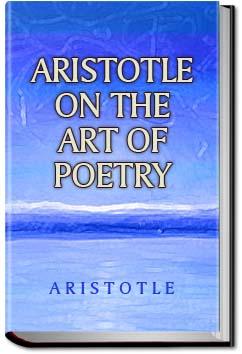UNLIMITED Audiobooks and eBooks
Over 40,000 books & works on all major devices
Get ALL YOU CAN for FREE for 30 days!
Poetics. English
Aristotle
How does All You Can Books work?
All You Can Books gives you UNLIMITED access to over 40,000 Audiobooks, eBooks, and Foreign Language courses. Download as many audiobooks, ebooks, language audio courses, and language e-workbooks as you want during the FREE trial and it's all yours to keep even if you cancel during the FREE trial. The service works on any major device including computers, smartphones, music players, e-readers, and tablets. You can try the service for FREE for 30 days then it's just $19.99 per month after that. So for the price everyone else charges for just 1 book, we offer you UNLIMITED audio books, e-books and language courses to download and enjoy as you please. No restrictions.
Try now for FREE!

"Love your service - thanks so much for what you do!"
- Customer Cathryn Mazer
"I did not realize that you would have so many audio books I would enjoy"
- Customer Sharon Morrison
"For all my fellow Audio Book & E-Book regulars:
This is about as close to nirvana as I have found!"
- Twitter post from @bobbyekat



Community Reviews
I read this for The Literary Life Podcast. Fascinating ideas that spark thought and discussion. I do not think this would in any way be a modern manual for writing, although I do think there are helpful ideas which spark further thinking.
The title is misleading; Aristotle discusses in this treatise not poetry but drama, and in particular the tragedy. The confusion rises from the fact that Classical Greek plays used to be written in metred verse. Aristotle's analysis is so lucid and systematic that it is hard to believe that this boo
If you want to learn about tragedy--or narrative in general--this is still the best place to start.
افلاطون موتور محرک اندیشه های ارسطو بود. از آن جایی که هیچ اندیشمندی در جهان وجود ندارد که دچار اشتباه نشده باشد، ارسطو نیز در فن شعر از اشتباهات محاسباتی به دور نبوده است. نظام اخلاقی افلاطون، باعث طرد و تحریم برخی از شاخه های هنر و ادبیات گردید. در بخشی از این تعصبات افلاطون حق داشت و در بخشی دیگر
This is the best commentary I could find on The Poetics. Bywater's is a much better translation and immensely readable, except for the places where he employs the Greek without transliteration. A good strategy could be to keep to Bywater for a first read, and then use Whalley's idiosyncratic and 'de
During the golden age of ancient Greece bards roamed the countryside mesmerizing crowds by reciting the epics of Homer. Thousands of men and women gathered and were moved to tears by tragedies performed outside in amphitheaters during sacred festivals. Such an amazingly powerful and profound experie
It’s odd that the most ancient essay on literary criticism is one of the easiest to understand. It is so accessible. If you compare this to works by Nietzsche, Hegel and Freud the extremities of this can easily be seen. Aristotle explains his theory in the most basic language possible with no artful